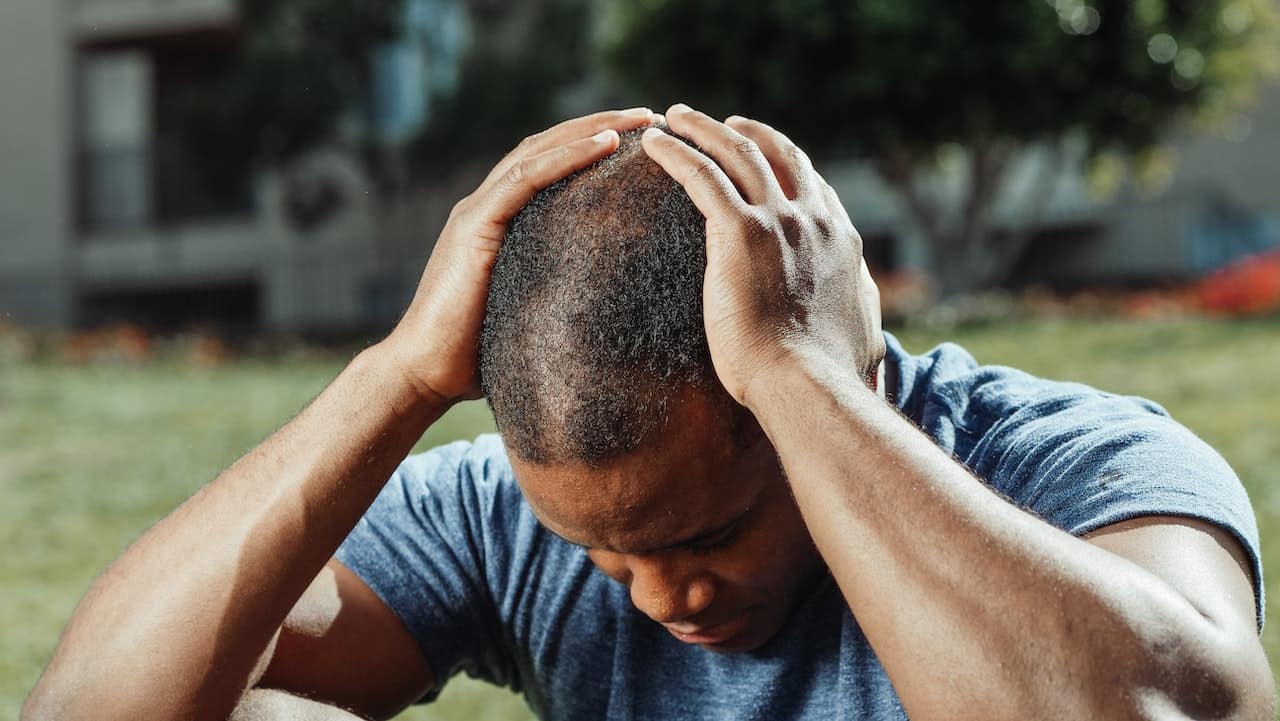Have you ever wondered what happens when the delicate, intricate machinery of the brain is suddenly disrupted? A single moment, a chance accident, and life can change forever. This is the story of acquired brain injury (ABI) – a term that encompasses a wide range of brain injuries caused by external forces after birth. In this article, we’ll delve into what an acquired brain injury is, explore its different forms, shed light on the possibilities of recovery and rehabilitation, and explain how to start a serious injury claim.
What is an Acquired Brain Injury?
An acquired brain injury occurs when the brain suffers damage due to various non-congenital factors, such as trauma, illness, oxygen deprivation, or exposure to harmful substances. Unlike congenital brain injuries, which are present at birth, acquired brain injuries happen later in life. These injuries can be sudden and unexpected, forever altering the course of one’s life.
Forms of Acquired Brain Injuries
Acquired brain injuries can manifest in different forms, each unique in its causes and effects. Let’s take a closer look at some common examples:
Traumatic Brain Injury (TBI)
Traumatic brain injuries result from external forces, typically caused by accidents or falls. Car crashes, sports-related incidents, and severe blows to the head are common culprits. These injuries can lead to a wide range of cognitive, physical, and emotional impairments.
Stroke
Stroke occurs when blood flow to a part of the brain is interrupted, either due to a blockage (ischemic stroke) or a burst blood vessel (hemorrhagic stroke). This lack of blood and oxygen can cause brain cells to die rapidly, leading to various functional disabilities.
Anoxia and Hypoxia
Anoxia and hypoxia refer to the lack of oxygen supply to the brain. Anoxia is the complete absence of oxygen, while hypoxia is a reduction in oxygen levels. These conditions can arise from suffocation, near-drowning incidents, or severe respiratory issues, causing significant damage to the brain.
Brain Tumour
A brain tumour is an abnormal growth of cells within the brain. As the tumour grows, it can exert pressure on surrounding brain tissue, leading to impairments in motor skills, cognition, and other essential functions.
Infection
Certain infections, like encephalitis or meningitis, can directly target the brain, causing inflammation and damage to brain cells. The severity of the injury depends on the type of infection and how quickly it is diagnosed and treated.
The Journey to Recovery
When faced with an acquired brain injury, the road to recovery can be challenging and uncertain. Each individual’s experience is unique, influenced by factors such as the type and severity of the injury, the age of the person, and the promptness of medical intervention.
Immediate Medical Care and Rehabilitation
In many cases, the immediate focus after an acquired brain injury is stabilising the person and preventing further damage. The primary goal is to ensure adequate oxygen supply to the brain, reduce swelling, and address any other critical medical issues. Once the patient’s condition is stable, the journey of rehabilitation begins.
The Power of Neuroplasticity
The brain is a remarkable organ with the ability to adapt and rewire itself. This phenomenon is known as neuroplasticity. During the recovery process, the brain can form new neural connections, allowing other areas to take over functions that were affected by the injury. Rehabilitation therapies play a vital role in promoting neuroplasticity and helping individuals regain lost abilities.
Physical Rehabilitation
Physical rehabilitation is crucial for individuals who have experienced mobility issues due to acquired brain injuries. Physiotherapists work closely with patients to improve balance, coordination, strength, and range of motion. This form of rehabilitation can significantly enhance independence and overall quality of life.
Cognitive Rehabilitation
Cognitive rehabilitation focuses on addressing cognitive deficits resulting from brain injuries. Cognitive therapists employ various techniques and exercises to improve memory, attention, problem-solving skills, and language abilities. This form of therapy empowers individuals to regain their cognitive prowess and enhances their ability to perform daily tasks.
Speech and Language Therapy
Acquired brain injuries can often impair speech and language abilities. Speech and language therapists employ specialised techniques to help individuals regain their ability to communicate effectively. This therapy is essential for fostering social interactions and rebuilding confidence in personal relationships.
Emotional and Psychological Support
Recovery from an acquired brain injury is not solely physical; it’s an emotional and psychological journey as well. Coping with the changes brought on by the injury can be overwhelming for both the individual and their loved ones. Counselling and psychological support provide a safe space to process emotions, fears, and uncertainties, fostering resilience and mental well-being.
Can You Recover from an Acquired Brain Injury?
The road to recovery after an acquired brain injury can be arduous, but it’s essential to remember that recovery is indeed possible. The extent of recovery varies from person to person and depends on the factors discussed earlier.
Partial or Full Recovery
Some individuals may experience a near-complete recovery, regaining most of their physical and cognitive abilities. Others may achieve partial recovery, meaning they can perform certain tasks independently, but may still require support in other areas. For some, the impact of the injury may be permanent, necessitating ongoing care and assistance.
A Different Path to Success
Recovery does not always imply returning to the exact state of being before the injury. Instead, it often involves finding new ways of accomplishing tasks and adapting to the changes brought on by the injury. Embracing these changes and focusing on progress, rather than perfection, can lead to significant accomplishments and a fulfilling life.
The Role of Family and Support Networks
A robust support network, comprising family, friends, and healthcare professionals, is instrumental in the recovery process. Their encouragement, understanding, and empathy can make a world of difference in the emotional well-being of the individual and the success of the rehabilitation journey.

Making a Serious Injury Claim
When an acquired brain injury occurs due to the negligence or wrongful actions of others, pursuing a serious injury claim becomes crucial. In such cases, legal recourse may be sought to ensure the injured individual receives the compensation they deserve for medical expenses, ongoing care, and other losses incurred due to the injury.
The Importance of Legal Representation
Navigating the legal process for a serious injury claim can be complex and overwhelming, especially when the focus should primarily be on recovery and rehabilitation. This is where we at National Claims play a vital role. Our claims specialists possess the knowledge and expertise to handle the intricacies of the legal system, allowing the injured party and their family to concentrate on the healing process. We will also provide assistance regarding the claims process.
Gathering Evidence
To build a strong serious injury claim, substantial evidence is required to establish fault and liability. Attorneys work diligently to gather medical records, accident reports, witness statements, and other relevant documentation to support the claim. This evidence serves as a foundation for negotiations with insurance companies or presenting the case in court.
No Win, No Fee
We work on a “no win, no fee” basis. This means that we only collect their fees if they successfully obtain compensation for the injured individual. This arrangement provides peace of mind to the injured party, knowing that their legal team is fully invested in their case’s success.
Conclusion
Acquired brain injuries can irrevocably change lives, affecting not just the injured individual but also their loved ones. Understanding what an acquired brain injury is and the different forms it can take helps create a compassionate and supportive environment for those going through the recovery process.
While the journey to recovery after an acquired brain injury may be challenging, it’s essential to recognize that recovery is possible. Each person’s experience is unique, and rehabilitation plays a critical role in maximising their potential to regain lost abilities and lead fulfilling lives.
In situations where the acquired brain injury resulted from someone else’s negligence or wrongful actions, pursuing a serious injury claim becomes vital. National Claims can help navigate the complexities of the legal process, ensuring the injured individual receives the compensation they deserve.
Ultimately, with the right support, medical care, and unwavering determination, individuals with acquired brain injuries can find hope, strength, and resilience on their path to recovery. Together, as a society, we can extend compassion and understanding to those affected by acquired brain injuries, fostering a community that supports and empowers one another on the road to healing.
Contact us today to be put in touch with one of our claims specialists and start your claim for your serious injury.
Click below to see why we are one of the most trusted claims management companies in the UK.

We’re proud of our excellent customer reviews
We thrive on delivering exceptional service and ensuring our clients’ satisfaction. Don’t just take our word for it. Check out some of our independent reviews to see what our clients have to say.
Excellent

This firm is excellent, they sorted out my car pay out and injury claim very fast, they always communicate with you all the time.

My accident case was dealt with confidence and with great result of the outcome, especially James kept me informed all the time.

I was very impressed at the way my inquiry was treated. I was listened to attentively and everything I needed to know was explained to me.






